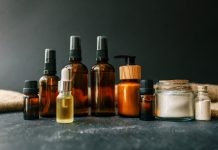As individuals and as a society, there is a need for not only resilience but, crucially, solidarity in the face of the many challenges presented by the coronavirus pandemic. OCP Group, the world leader in phosphates, acted decisively when the outbreak unleashed itself on Morocco taking a frontline role in the battle to keep the nation’s economy moving and its communities safe.
OCP Group is not only a large national employer, with just under 21,000 direct staff, it has significant reach within the Moroccan non-profit landscape. Through a combination of charitable initiatives, support programs, and agricultural guidance schemes, the group touches the lives of around 350,000 people.
With operations at this scale, OCP was uniquely placed to support the moroccan Covid-19 response. with the group’s Covid-19 task force coordinating a multitude of business continuity plans and resiliency strategies around the country, OCP has substantially reinforced the government’s efforts.
The commitment to economic resilience started with a $300 million contribution from OCP to the government-led coronavirus fund, capital raised for the purpose of supporting people put out of work due to consequences of the outbreak as well as reinforcing health services. This was followed by steps by OCP to enhance the equipment and facilities of local hospitals, along with volunteer-led medical outreach strategies, preparing people and infrastructure for the shock of the crisis.
The group quickly put in place a number of protocols designed to limit disruption to its own operations. Given the fertiliser producer’s critical role in global food security, safe and continued production is vital not only to Morocco but to its many international partners as well, who use the group’s fertiliser in their food production.
Remote work was clearly one solution. More than half of the group’s employees are now working from home, with only those with roles that absolutely require them to be on-site still continuing to do so. As well as taking on all of the necessary coronavirus hygiene and safety measures in its own operations, the group also looked to its partners, customers, and suppliers to ensure that they too were positioned to endure and to succeed despite the crisis.
Digital Inclusion And Distribution
By removing the issue of reduced mobility for businesses and maximising their visibility within their respective local markets, OCP empowered them to greatly enhance their online sales in the context of the COVID-19 lockdown measures.
The goal was to offer artisans and other members of the solidarity economy the opportunity for continued activity, equipping them with online sales tools.
The Act4Cooperatives program has been supporting cooperatives through technical and managerial training, as well as through the creation of catalogues listing their products and helping them to set up home delivery systems.
Cooperatives at OCP’s Jorf Lasfar site have successfully switched to these processes. For the Gantour sites, a catalog of local products is available on the Act4Community Facebook page. For Safi-Based cooperatives, there is an e-commerce platform for their products available with delivery options.
Each of these initiatives enables local groups to access customers in their community. Part of the strategy is to shorten the circuits of sales, reducing value lost to distribution costs. At the same time, with greater visibility at a time when people increasingly shop online, the cooperatives reach customers that they might otherwise have not.
Resilience Through Agility
OCP Group has also been helping small enterprises to adapt their operations to the new business environment in other ways. its volunteers have been providing training in soft skills to assist companies in making the needed adjustments. The program aims to guarantee fixed incomes for these cooperatives, thereby supporting a resilient economy.
An encouraging example, among many, are the 300 fishermen in el jadida who received hygiene and awareness training from group volunteers. This in turn gave them the knowledge and confidence to get back to work and continue earning during the outbreak.
OCP also helped a small business focused on gardening to become a delivery service. Currently, this business now operates in conjunction with the same fishermen, delivering their catch to local customers and charging for the service.
OCP employees are the primary customers of these types of cooperatives. More than 5,000 group employees have been encouraged through internal communication to make their purchases from the cooperatives in their communities, keeping these businesses afloat. This is just one more way that OCP is contributing to the national solidarity effort.
Another two cooperatives, operating sewing businesses at the Jorf Lasfar site, were able to pivot their production to medical facemasks. They were among the large number of different cooperatives who benefitted from technical and managerial support from OCP group volunteers. The Act4Community initiative also made thirty sewing machines available to them to reinforce their production capacities.
Subsequently, they received orders from several towns, together coming to 100,000 ordered units. In collaboration with two separate industry authorities, the masks produced by these two cooperatives obtained quality certification, compliant with the technical requirements of sanitary authorities.
Not only were these workers kept in employment by this change of their operations, but the national capacity to produce vital protective equipment was significantly strengthened.
OCP Group has contributed to the Moroccan health crisis response through large contributions to government funds, through reinforcing its own operations, by protecting its employees and extending the services of its medical teams to partners.
The story of how it has supported the ongoing activities of smaller, local businesses, however, is even more inspiring. It is these insightful, big-picture ideas that make the difference in enduring tests such as the global pandemic.



































